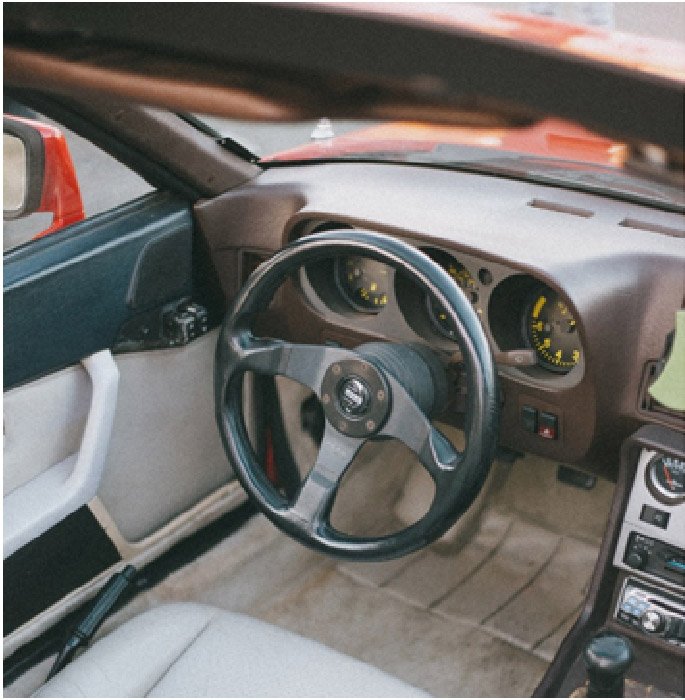Buying a used car in the UK is a big decision, and you expect the car to be legal, safe, and genuinely owned by the seller. But thousands of stolen vehicles are still circulating in the market each year. Some are sold privately, some appear on online marketplaces, and some even end up with traders who do not know the vehicle’s real history.
A car history check is one of the quickest ways to protect yourself from buying a stolen car. It helps you confirm the true identity of the vehicle and ensures the seller has the legal right to sell it.
Understanding the problem of stolen cars in the UK
Car theft remains a serious issue in the UK. According to the Office for National Statistics (ONS), over 130,000 vehicles were stolen in 2023, a sharp increase compared with previous years. Modern keyless entry cars are also more at risk because thieves use signal-boosting devices to unlock and start them within seconds.
Many stolen cars do not get recovered quickly. Some are dismantled for parts, while others are cloned with a false registration and then sold to unsuspecting buyers.
When a buyer unknowingly purchases a stolen car:
- The police can seize the vehicle at any time.
- The buyer loses both the car and the money paid for it.
- Insurers will not cover the loss.
This makes it extremely important to check a car’s background before paying any deposit or visiting the seller.
What a vehicle history check reveals about stolen status
A vehicle history check helps you confirm if the car is recorded as stolen, missing, or flagged by insurance companies. It uses data from national and police-linked databases, giving you trusted information within seconds.
Here are the key stolen-status checks included:
- Police theft records
The check searches police databases to see if the car has been reported stolen. If the vehicle appears on the Police National Computer (PNC), it means the car is illegal to buy or sell.
- Insurance “stolen but not recovered” records
Some cars are stolen and claimed through insurance, but recovery is still pending. If the vehicle appears in these records, it is a major red flag.
- Cloned vehicle alert
History checks compare registration, VIN, engine number, and vehicle details to detect possible cloning. If the physical details do not match official records, the car may be running on false plates.
- Keeper and ownership anomalies
A sudden or unusual number of keeper changes can suggest suspicious activity. A stolen vehicle often has missing or incorrect keeper information.
A reliable vehicle history check gives you all these details in a single report, so you know exactly what you’re dealing with before making a decision.
How a vehicle history check protects you before buying
A vehicle history check keeps you safe by guiding you through the most important steps of verification. It reduces the risk of fraud and gives you confidence that you’re dealing with a legitimate seller.
Here’s how it helps:
- Confirms the Vehicle’s Identity
A stolen vehicle often carries a cloned registration number. A history check compares the VRM with DVLA data to confirm:
- Make
- Model
- Colour
- Body type
- Engine size
- Year of manufacture
If anything does not match, you should immediately walk away.
- Highlights stolen records
The report will clearly show a “Stolen” status if the vehicle is flagged. This prevents you from making any payment, even if the seller pressures you.
- Validates the seller’s ownership
If the seller claims to be the legal owner, the history check helps verify:
- When they became the keeper
- How long they have held the car
- Whether keeper change patterns look normal
If the details look suspicious, it is safer not to continue.
- Helps you verify the car’s service records
A stolen or cloned car often has missing or inconsistent service records. By matching the seller’s documents with the service entries in the vehicle history report, you can spot gaps, mileage jumps, or false claims and confirm whether the service history is genuine.
- Supports safe transactions
A clean history report gives you the confidence to buy or negotiate the price. If the report shows issues, you avoid a costly mistake.
- Helps you spot unrealistic pricing
Stolen or cloned cars are often listed well below their real market value. A vehicle history check paired with a quick car valuation helps you see if the price makes sense. If the asking price is unusually low, it may signal stolen activity or hidden problems.
Other signs a car may be stolen or cloned
While a vehicle history check provides the most accurate data, there are some common warning signs you can look for during an inspection:
- Seller refuses to show ID or proof of address
- Price is far below market value
- Seller only accepts cash
- Viewing location keeps changing
- Logbook details don’t match the seller’s story
- VIN plate looks scratched, loose or altered
- No service records or MOT history mismatch
If you notice any of these, it is safer to walk away.
Why a vehicle history check should be your first step
Whether you’re buying from a private seller, trader, or online marketplace, checking the vehicle’s history first helps you avoid:
- Losing your money
- Buying a stolen or cloned car
- Legal trouble if the police seize the vehicle
- Hidden risks like finance, write-off or mileage issues
Most checks take less than a minute and cost far less than losing your investment to a stolen car scam. It gives you complete peace of mind, showing whether the vehicle is safe, legal, and worth buying.
Final thoughts
Stolen vehicles remain a major issue in the UK, and buyers need to be more cautious than ever. A vehicle history check is one of the most effective tools to stay safe. It highlights theft alerts, ownership anomalies, cloning risks, and police records before you commit to a purchase.
With one quick check, you protect your money, avoid legal problems, and ensure the car you’re buying is genuinely yours to own.
For More Information, Visit Dotmagazine









